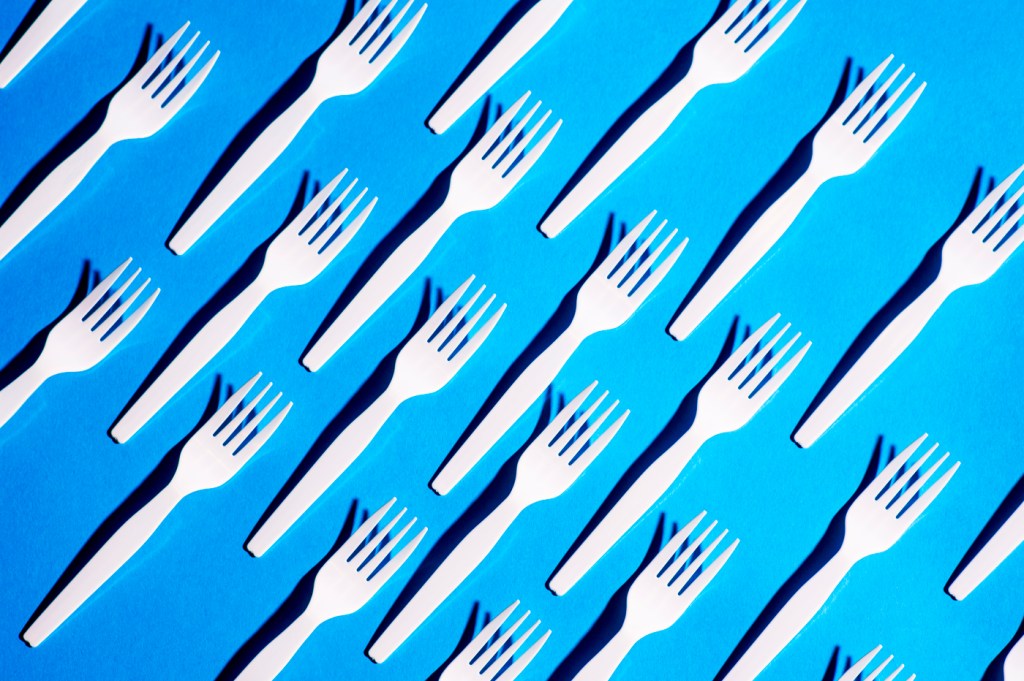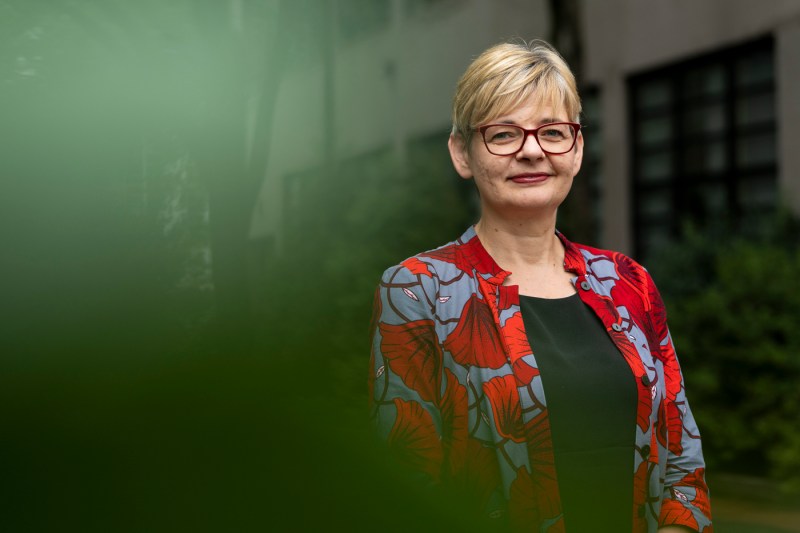Will the US ban the
use of single-use plastics like
England, India, Hong Kong and
other countries?
All plastics need to be treated as a public health issue that requires regulation and a change in the consumption culture, Northeastern experts say.

Madhavi Venkatesan, associate teaching professor of economics at Northeastern University, is convinced that human convenience is an expense the environment cannot afford.
That is why she founded Sustainable Practices — an environmental action group in Cape Cod, Massachusetts, where she lives — and spearheaded the Cape Plastic Bottle Ban initiative, raising awareness of how single-use plastic bottle consumption affects the environment and human health.
“We’re paying for that convenience product through intergenerational time,” she says. “But future generations yet unborn will still be paying for the fact that we consume them today. Plastic does not degrade into natural substances.”
Venkatesan’s group achieved municipal bans on single-use plastic bottles in all 15 towns of Cape Cod. Now, Sustainable Practices is focused on banning all non-carbonated, non-flavored water in single-use plastic bottles under a gallon, as well as single-use plastic cutlery and tableware.
Similar restrictions have been made in other cities and towns throughout the United States. Meanwhile, some countries such as England, India, Chile, Rwanda, Kenya and New Zealand have passed national bans on some single-use plastic products, such as plastic bags or cutlery.
In Hong Kong, a ban on styrofoam products and single-use utensils — plastic plates, spoons, forks, knives and straws — went into effect on April 22, Earth Day. Plastic food containers and cups are still allowed, but those are expected to be added to the ban next year.


In Canada, the government announced a new plastics registry on Monday. Makers of plastic packaging, electronics and other single-use products will be required to report annually how much plastic they produce and where those products end up.
What will it take to ban single-use plastic products in the U.S.?
Venkatesan says it’s about the government putting the environment before the interests of businesses that rely on plastics — and the public will follow.
Although about two dozen states in the U.S. have introduced plastic bag bans, there is no national ban on plastic products of any kind.
Federal regulation of plastics needed, expert says
Maria Ivanova, director of Northeastern’s School of Public Policy and Urban Affairs, says the U.S. needs to introduce a federal regulation of plastics.
“Then it will have to happen across all 50 states,” she says.
Bans such as Hong Kong’s are the first step in eliminating as much plastic as possible from modern life, says Ivanova, who is helping negotiate a treaty to end plastic pollution between 193 member countries in the United Nations Environment Assembly.
“Smoking was cool, and there were so many ads about smoking,” she says. “And then people learned that smoking is bad for their health not only if they smoke, but also if they inhale secondhand smoke.”
Businesses are often motivated by profits, Venkatesan says, and the U.S. has a pro-business economy.
“The only reason why we have so many convenience products … is that’s what causes growth in our economy,” she says. “Maybe we need to rethink how we value our economy because growth is actually killing us.”
Once a single-use plastic product is made available to the public, Venkatesan says, it is very hard to pull it off.
“A larger proportion of the population will just do whatever is accessible to them,” Venkatesan says. “They’re not really thinking about it.”
‘We only need a few vigilant people’
That’s why bans, she says, are necessary to limit single-use plastic products. In her experience, you don’t need to convince everyone a ban is needed.
“We only need a few vigilant people to put those bans in place and then fight to maintain them,” she says. “Eventually people’s behavior will change if a product is not there. You need to educate people as to why this ban is going into effect.”
Venkatesan does not believe bans limit the free will of consumers. Instead, she believes they limit the free will of businesses to produce any product they want — at the expense of the environment.
“Sometimes we just have to admit to ourselves we made a mistake creating something which turned into a long-term problem,” she says.
Microplastics are now found in human blood, in human placenta and in sperm, Ivanova says.
“When we put plastic utensils in our mouth or when you drink from a cup that is lined with plastic …you ingest some part of the polymer of the chemicals,” she says.
Plastics are directly tied to endocrine disruption, Venkatesan says, fertility issues, autoimmune diseases, carcinogenic impacts, cardiovascular diseases and obesity.
“This to me means that plastics are a human health issue,” she says. “It should be a public health issue.”
Plastics are also pollutants, she says. As petroleum-based products they are dependent on fossil fuels and contribute to carbon dioxide emissions.
Featured Posts
Why recycling doesn’t solve the problem
Companies that produce single-use products, Venkatesan says, often promote recycling.
“Recycling has been so entrenched in our system, that it’s basically, an out-of-sight out-of-mind [approach],” she says. “So they [people] think that because they put things in a recycling bin that it’s getting recycled, but they don’t bother to care or have responsibility once it goes into the bin.”
In 2017, China, the largest buyer of plastic trash from the U.S., started to significantly cut back on plastic imports, Venkatesan says, effectively eliminating most of the foreign demand for American plastics. Most plastic recyclables now end up going into landfills or get incinerated.
“Incineration of plastics should be a big red flag to people because it’s a carcinogenic substance,” she says. “It’s toxic.”
Of course, the world depends on plastic so much, Ivanova says, that there will always be certain spaces in society where people will need to use plastics, for example the health care system.
“But that is why it’s even more important that we eliminate as much of the non-essential single-use plastics as possible,” she says.
She is hopeful that things may shift when manufacturers figure out how to produce more durable, reusable and recyclable plastics.
“We just need to change behavior to use less, to use reusable and, when absolutely necessary, to use biodegradable alternatives,” Ivanova says.











